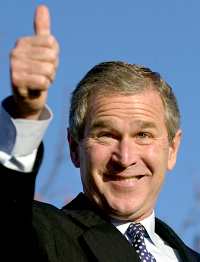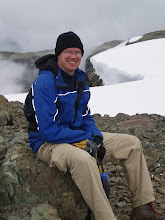Richard Bona was the first person I heard play the kalimba really well; he creates an ethereal sound by combining his falsetto voice with kalimba notes.
This video is On Her Way from Speaking of Now Live. Laura Barrett has been gaining popularity for her kalimba playing; however, to me, she presents a much less convincing sound than Bona due to her flat voice, which recalls a hollow Lili Haydn or a tamed Kimya Dawson. It may also be that she lacks the varied history that textured Bona’s voice.
Although a number of different takes, such as Jake Shimabukuro’s ukelele playing, have grown in popularity, living legends continue to be ignored in North America; perhaps, this is unsurprising due to the herd behaviour recently outlined by Thaler and Sunstein. One such legend is Ernest Ranglin who, like the blues players of the South that influenced so many but rarely gained widespread acknowledgment, helped birth ska music. He has been performing blazing, innovative, licks for years, which are imbued with the rhythms of his native Carribbean. One of my favourite albums is The Search for the Lost Riddim, for which he returned to Senegal 20 years after his stint with the Jimmy Cliff Band.Inside North America few capture the essence of humanity like Lili Haydn; rich verse, such as the following from The Saddest Sunset, adorns her somber violin playing:
It was great to see her performance on Californication. (View my brief review here.) In order to explore more of the world’s musical richness check out Mondomix (previously Calabash), Nat Geo Music, and Smithsonian Global Sound.It's hard when no one hears you calling.
Who will catch you if you fall?
And though the waters are rising
We all leave and come in alone.
The love that you're longing for is your own.

 This Sunday, thousands are expected to wake up early, take a couple of pounds of bacon and sausage from the fridge, and prepare a
This Sunday, thousands are expected to wake up early, take a couple of pounds of bacon and sausage from the fridge, and prepare a  Mark Aretz, an architect and renovator in eastern Germany, opened the door to an
Mark Aretz, an architect and renovator in eastern Germany, opened the door to an  In Istanbul archaeologists have discovered
In Istanbul archaeologists have discovered  At the
At the 
 When I first read about The Wrestler in
When I first read about The Wrestler in  Few people would have had low expectations for Obama’s inauguration speech, and he did deliver; however, as far as Obama-speeches go it seemed to fall a little flat, lacking a measure of his patented passion, inspiration, and lustre. Perhaps this was due to a sober mood or the nervousness exhibited when he swore the oath; nevertheless, at the end of the day it doesn’t matter. Final notice was served to Bush and a good inauguration speech was delivered, especially in contrast to the sermon (oops, I mean prayer) Rick Warren delivered. Here are some highlights he could have stressed more vigorously on a less solemn occasion with fewer security and time constraints.
Few people would have had low expectations for Obama’s inauguration speech, and he did deliver; however, as far as Obama-speeches go it seemed to fall a little flat, lacking a measure of his patented passion, inspiration, and lustre. Perhaps this was due to a sober mood or the nervousness exhibited when he swore the oath; nevertheless, at the end of the day it doesn’t matter. Final notice was served to Bush and a good inauguration speech was delivered, especially in contrast to the sermon (oops, I mean prayer) Rick Warren delivered. Here are some highlights he could have stressed more vigorously on a less solemn occasion with fewer security and time constraints.
 Despite his best intentions Bush has gone out with a whimper — the only legacy the “
Despite his best intentions Bush has gone out with a whimper — the only legacy the “ Since my last post (Sorry about the long delay) I have been trying to get a leg up on an unassailable wall: overwhelmed and paralyzed, I have been wallowing in apathy, well, nearly. I attempted to write numerous posts, but these now line the trash, since none were adequate in expressing my misgivings. At first I attributed my malaise to the fluctuating emotions and experiences that reign during the holidays, joy/sadness, giving/receiving, and people you miss/can happily miss. I only did this, however, to avoid facing the real reason: against the backdrop of
Since my last post (Sorry about the long delay) I have been trying to get a leg up on an unassailable wall: overwhelmed and paralyzed, I have been wallowing in apathy, well, nearly. I attempted to write numerous posts, but these now line the trash, since none were adequate in expressing my misgivings. At first I attributed my malaise to the fluctuating emotions and experiences that reign during the holidays, joy/sadness, giving/receiving, and people you miss/can happily miss. I only did this, however, to avoid facing the real reason: against the backdrop of 
